Islam
Time to Talk About Tawakkul –” Tie your camel first, then put your trust in Allah.”
Published
3 years agoon
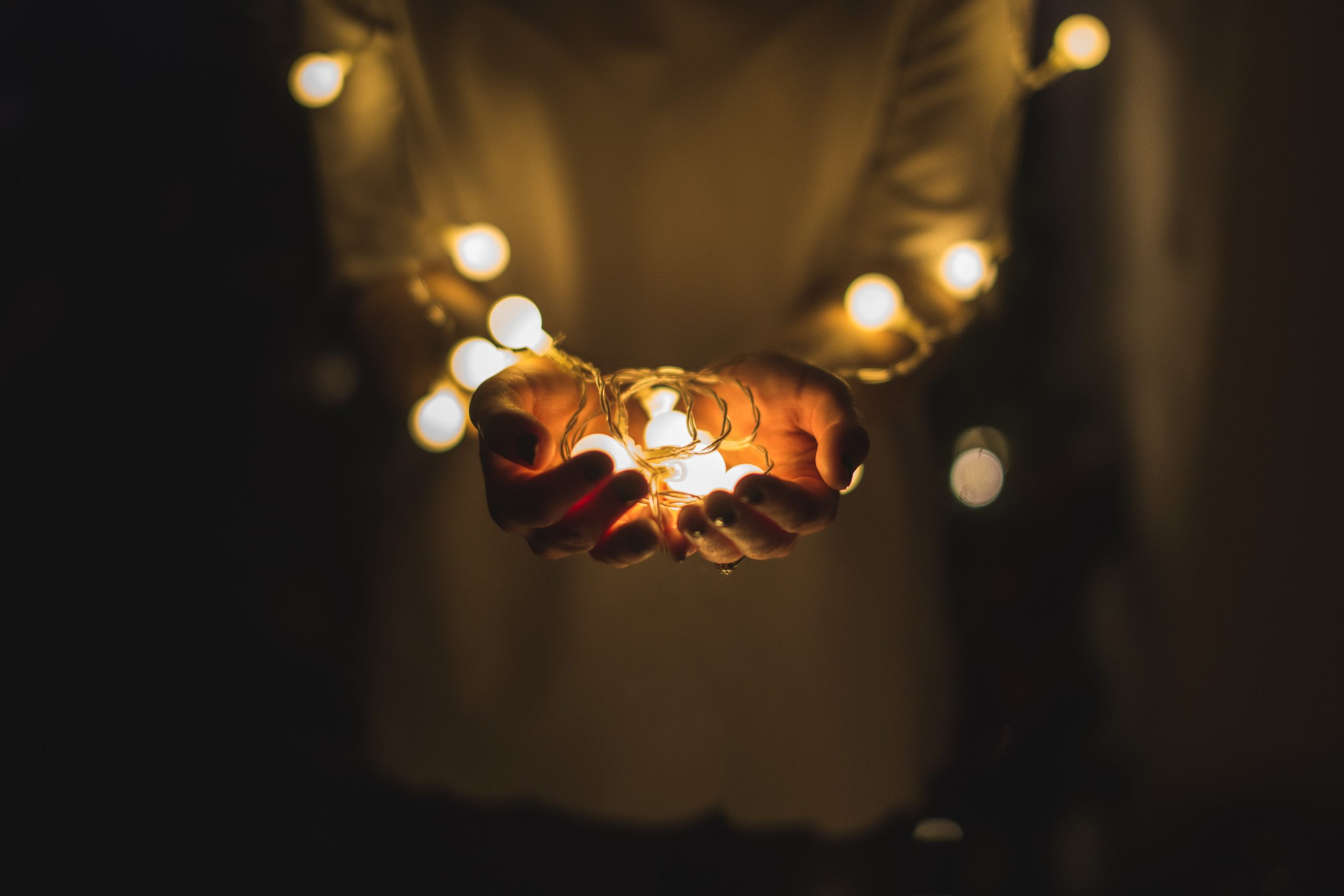

“… Perhaps you dislike something which is good for you and like something which is bad for you. Allah knows, and you do not know.”
Al- Baqarah: 2: 216
Placing your trust in Allah (SWT) is Tawakkul, and it’s about the complete faith you have in Him. Regardless of the situations that unfold, you still believe that Allah (SWT) will show the rope.
Tawakkul is the core of every Muslim. Our spiritual connection with Allah (SWT) is tied to Tawakkul. If you have it in your heart, life becomes less stressful and happier. I wouldn’t say that you’d lead a happy life; rather, problems or burdens will not overwhelm you. The trust in Allah (SWT) will provide the strength to keep moving.
It’s human nature to worry about the unseen and stress over things they have no control of. But above all these, it’s Tawakkul that leads our path and strengthens our minds. Beyond the problems we face daily, we still believe that there’ll be good, and Allah doesn’t burden a soul more than it can handle.
When you understand the power of placing your trust in Allah, you realize that the things that didn’t work as you planned happened for a reason. You feel contentment and comfort when you realize that Allah (SWT) provides what’s good for you and takes away what’s not good for you.
It’s vital to think about your relationship with Allah (SWT) and to evaluate the level of trust that you have placed in him.
Increase Your Understanding About Allah (SWT)
To have Tawakkul, you must understand and develop your connection with Allah (SWT). When you are reciting the Quran or saying Allah’s (SWT) names, you must take some time and think about them.
When you understand Allah’s names, you become more aware of them, and the definitions strengthen your bond with Allah.
He is in control of his creations, and as Muslims, we should understand this to realize what Tawakkul is. When our love for Allah grows, we automatically develop the connection with Him that gives us the security needed.
It’s not as if your life will be a bed of roses if you trust Allah. Instead, your problems and issues will not make you feel low or underproductive to engage in daily activities. When you have Tawakkul, it gives you the strength to go forward in life regardless of the hurdles on your way.
Anyway, how to put your trust in Allah? Here are some tips to rely upon your Creator even if things aren’t going as you planned.
1. Make It Happen
Relying upon Allah does not mean you can sit back and let everything happen on its own. Of course, Allah will handle all your affairs, but He wants you to do what it takes. Having faith also means acting upon it.
Similarly, Tawakkul doesn’t entirely depend on leaving all affairs to Allah. Rather it requires your effort. You should give your best to the task or goal you are trying to achieve and trust Allah. You must have a proactive attitude because that’s a part of Tawakkul.
“Tie your camel first, then put your trust in Allah.”
The Prophet Muhammad (PBUH)
2. Stay Humble and Kind
If you are succeeding, it’s because of Allah. He has given you the ability or skills to get things done, so you can do it. Even the knowledge, thoughts, and intelligence that you have is given by Allah.
While you utilize these blessings, you should be thankful to Allah for providing them. It shouldn’t make you feel proud or become arrogant that you have the skills and abilities. Instead, you should be kind and stay humble. If possible, try to spread your skills and knowledge to others, which will benefit you now and in the hereafter.
3. Learn to Accept
We are humans, and denial is human instinct. When something happens in a way that we didn’t plan, our initial response is denial. But worry not, it is human nature.
It is also vital to understand that we must overcome the phase of denial because nothing happens without reason. You must rely upon Allah as He is fully aware of the things that you don’t know.
When you accept Allah’s decree, you become stronger and calmer. It gives the ability to move from the phase of denial to acceptance. Al-Qadr is part of your faith. Even if certain circumstances like losing a loved one could be tormenting, you will get through it. Allah will help you get through it if you rely upon Him.
There could be times that crumble you into pieces, but you reshape stronger. If you believe in Allah, the healing process gets more comfortable because you know that you have Allah (SWT).
4. Take Necessary Measures
This is one of the things that I often see in our community. People don’t take necessary measures, but they say they rely upon Allah.
Prophet Muhammad (PBUH) has said to tie your camel and then put trust in Allah. You must understand that it’s important to take measures while putting your trust in Allah.
Similarly, you shouldn’t forget about Allah (SWT) just because you have taken the necessary measures.
One of the prime examples is the Muslims’ behaviors during the pandemic. Some people don’t follow the health measures because they say they have Tawakkul, while others follow the health measures but don’t trust Allah or make dua.
These aren’t the approaches that Islam suggests. Instead, it’s about having Tawakkul while following the health measures.
So think about it. Aren’t we blessed to have Allah by our side? No matter what happens, how bad we fall, or what comes our way, we can turn to the Almighty for help.
“Allah—there is no god ˹worthy of worship˺ except Him. So in Allah let the believers put their trust.”
(At-Taghabun –64:11)
You may like
-

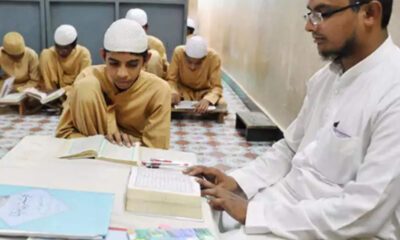


Is This the Ultimate Solution to Rising Islamophobia in India?
-

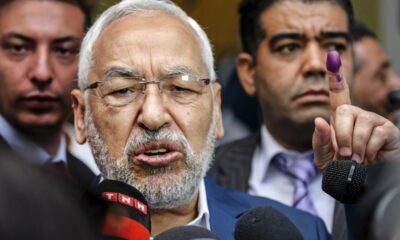


Islamic Democracy: Is Democracy Compatible with Islam?
-




I wrote Palestinian Blogs Without a Break and This is What Happened
-




Ramadan Sleep Tips to Have the Best of Ramadan Every Year
-




“Age to consent to sex in France: 15 Age to consent to Hijab: 18” – A ludicrous statement is up for debate!
-




Powerful Palestine Women That You Need to Know
Featured
Modi Bats for Uniform Civil Code in India
Published
1 year agoon
July 26, 2023By
Arif Jamal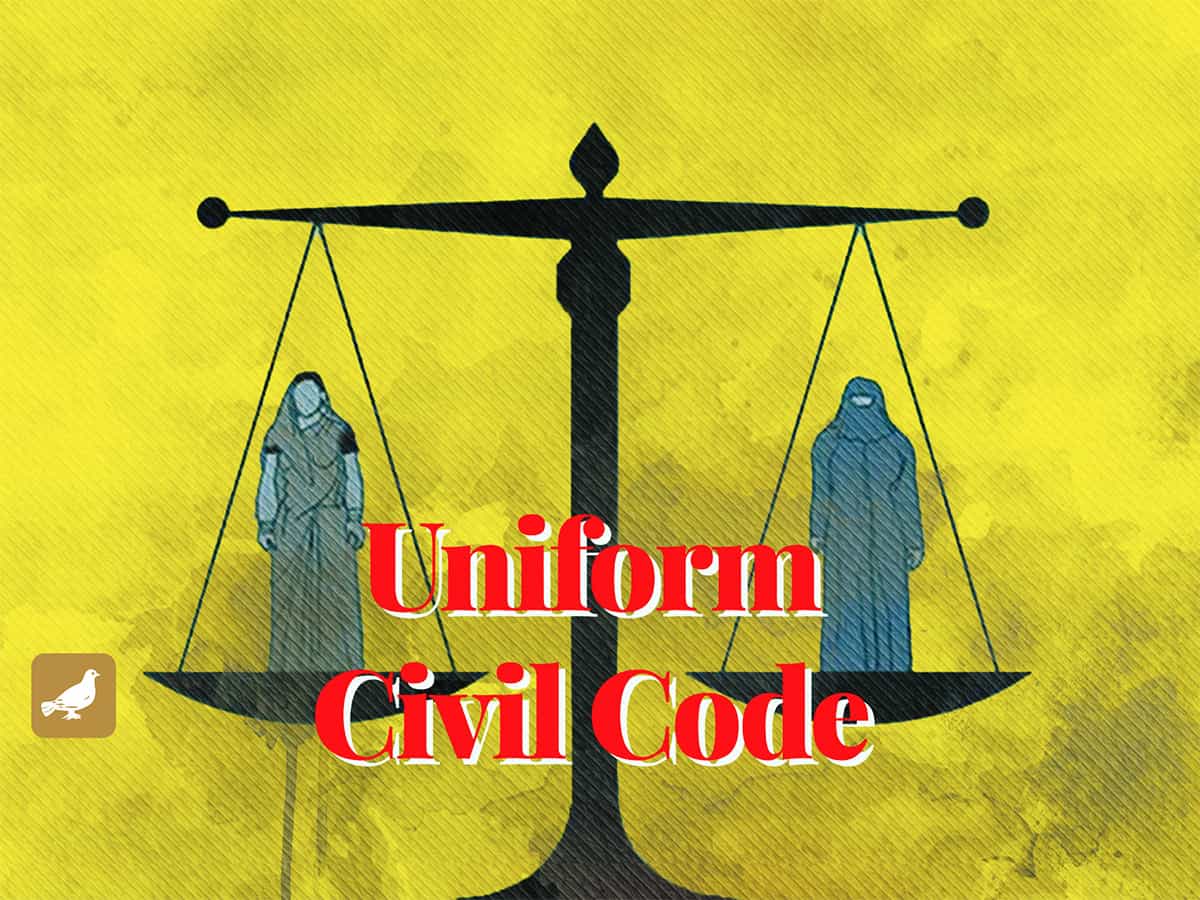

The debate over Uniform Civil Code in India has reached its crescendo. India’s Prime Minister Narendra Modi set the ball rolling last month when he asked— “Can a country be run on two laws?” The question posed by Modi has started a debate in India.
What are Personal Laws?
India follows legal pluralism with different religious communities following their own personal laws. Personal laws include matters of inheritance, divorce, child custody and alimony. Personal laws have their origins in British colonialism. Various history scholars have argued that Personal Laws in India were introduced by the British in order to “divide and rule” Indians along religious lines. However, there are counterarguments also that contend that the British introduced Personal Laws to preserve the culture of different religious communities in the Indian subcontinent.
Even though Hindu Personal Laws have been codified and reformed starting in the 1950s, Muslim Personal Law has not been reformed over time.
It is pertinent to mention that the ruling Bharatiya Janata Party’s (BJP) ideological parent Rashtriya Swayamsevak Sangh (RSS) staunchly opposed the codification and the reformation of Hindu Personal Laws in the early 1950s.
However, now that the BJP is in power, the RSS is pushing for a Uniform Civil Code.
The BJP claims that Muslim Personal Laws are an aberration because of Congress’ Muslim appeasement. The party further alleges that the personal laws perpetuate gender inequality in the Muslim community.
Also Read: Gujrat Riots: Has Indian Democracy Breathed its Last?
Muslim Women Equality and Uniform Civil Code
The origin of the debate over Muslim women’s equality and the Uniform Civil Code goes back to the early 1980s.
The Mohd. Ahmad Khan vs. Shah Bano Begum & Ors. or the Shah Bano maintenance case is seen as a landmark case in India’s legal history that had significant implications for the rights of Muslim women in matters of divorce and maintenance. In 1978, a 62-year-old Muslim woman named Shah Bano sought maintenance from her husband, Mohammed Ahmed Khan, after he divorced her through Triple Talaq. Shah Bano’s husband refused to provide her maintenance, leaving her in a difficult financial situation. Shah Bano approached the courts seeking financial support from her husband under Section 125 of the Code of Criminal Procedure (CrPC), which provides for maintenance to be given to a wife by her husband if she is unable to maintain herself.
The case reached the Supreme Court of India in 1985. The court ruled in favour of Shah Bano, stating that she was entitled to maintenance from her husband even after the divorce. The judgment was significant because it recognized that Muslim women could claim maintenance under secular law rather than solely being governed by Muslim Personal Law. However, the verdict was met with strong opposition from conservative Muslim groups, who argued that the court’s interference in Muslim personal law violated their religious rights. The Congress-led Indian government, under pressure from various Muslim organizations, passed the Muslim Women (Protection of Rights on Divorce) Act in 1986. The act overturned the Supreme Court verdict in the Shah Bano case and limited the maintenance period for divorced Muslim women to the Iddat period as laid down by Shariah.
The Shah Bano case and the subsequent passage of the Act sparked debates and discussions about the rights of Muslim women in India and the tension between personal laws and the principles of gender equality enshrined in the Indian Constitution. The case remains a pivotal moment in the ongoing discussions surrounding the rights and status of women in the context of personal laws in India.
Also Read: The Appalling State of Muslims in post-colonial India
What is Uniform Civil Code?
A Uniform Civil Code will abolish all personal laws and govern all the citizens of India with a uniform law. The marriage, divorce, inheritance, child custody, alimony and maintenance will be uniform for all the citizens irrespective of their religion.
For Muslims, the opinion of religious scholars on the above-mentioned personal matters will no longer hold. The courts will decide these matters according to the secular laws of the country.
Also Read: Bulldozer (In)Justice and the Plight of Indian Muslims
Liberal Defence of Uniform Civil Code
Liberal intellectuals across India are defending the implementation of the Uniform Civil Code. They argue that personal laws have perpetuated gender inequality in various religious communities. Further, they also see Uniform Civil Code as a vehicle of progress for the religious communities.
Their arguments are based on the fact that the founding fathers of India’s Constitution did not conceive India as a federation of religions.
Concerns over Uniform Civil Code
Minorities, especially Muslims have raised genuine concerns about the implementation of the Uniform Civil Code in India.
First, the demand for Uniform Civil Code is coming from the BJP-led government. Muslims do not trust the BJP government. The BJP government is using gender inequality in the Muslim community to emphasise the importance of the Uniform Civil Code. However, if BJP’s historical record concerning Muslims is considered, one cannot trust that they are well-wishers of Muslim women.
Second, if the record of the previous nine years of BJP rule is analysed, Muslims have been pushed to the margins. While the BJP government in Karnataka banned Hijab in schools and colleges, it did not take similar action against the religious symbols of other religious communities. Similarly, there have been several incidents where BJP-led state governments took action against Muslims who offered prayers publicly, but the same state governments facilitated the public religious expression of the Hindu community.
Therefore, the Muslim community of India is facing a dilemma. While they are not against the implementation of the Uniform Civil Code but at the same time they fear that the Code will be an expression of Hindu majoritarianism.
Featured
Muslim World League Chief’s Visit to India
Published
1 year agoon
July 20, 2023By
Naira Mir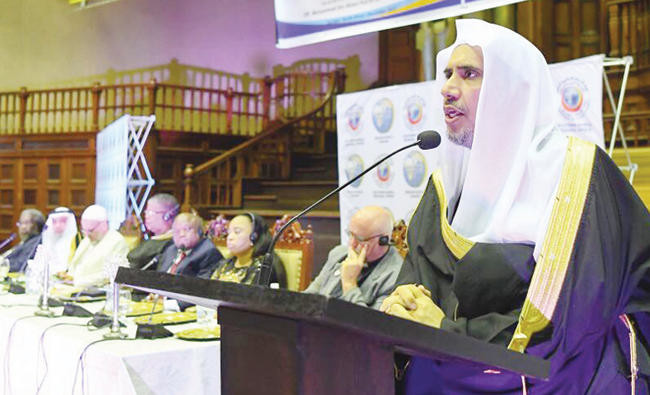

The recent visit of Sheikh Mohammed Bin Abdulkarim Al-Issa, Chief of the Muslim World League, to India holds significant importance in fostering interfaith dialogue, promoting peace, and countering extremism. Al-Issa’s condemnation of terrorist organizations, emphasis on the disassociation between Islam and extremism, and calls for unity and love amidst conflicts resonate with diverse communities. His visit to prominent religious sites, including the Akshardham temple and the Jama Masjid, further reinforces the significance of mutual respect, understanding, and cooperation among different faiths in the pursuit of global harmony.
Also, read Umar Khalid Completes 1000 Days in Jail Without Trail
Muslim World League’s Efforts for Peace and Countering Extremism
The Muslim World League, under Al-Issa’s leadership, has been actively engaged in countering extremist ideologies and promoting peace globally. Al-Issa’s visit to India provides an opportunity to reinforce their commitment to fostering dialogue, understanding, and cooperation among political and religious leaders, addressing critical issues related to countering extremism and promoting harmony within societies.
Read here, G20 Summit in J&K: China, Turkey, Egypt, Saudi Arabia opted out
Emphasizing Islam’s Rejection of Extremism
During his visit, Sheikh Mohammed Bin Abdulkarim Al-Issa made significant remarks emphasizing Islam’s rejection of extremism and its commitment to peace and harmony. He highlighted that extremist organizations do not represent Islam or any other religion, emphasizing their disconnection from religious teachings.
“Islam does not like double-speak and Muslims need to be truthful,” the Muslim World League secretary general said in his sermon delivered in Arabic.
Al-Issa emphasized the need to counter the distortion of the Islamic faith by terrorist organizations, emphasizing that Islam stands for peace, love, and harmony. He reiterated that the teachings of Islam promote compassion, tolerance, and respect for all humanity.
By underscoring the message that Islam has no place for extremism, Al-Issa aims to dispel misconceptions and bridge gaps between different religious communities. His statements seek to foster understanding, promote interfaith dialogue, and combat the spread of extremist ideologies that falsely claim religious justifications for violence.
Through his leadership in the Muslim World League, Al-Issa and the organization actively work to counter extremist ideologies and promote a peaceful interpretation of Islam. Their efforts include educational programs, interfaith initiatives, and ideological interventions aimed at fostering a culture of tolerance, coexistence, and peace.
Al-Issa’s emphasis on Islam’s rejection of extremism not only reaffirms the commitment of the Muslim World League but also serves as a powerful message to Muslims around the world. It reinforces the importance of understanding and living by the true principles of Islam while rejecting any form of violence or extremism.
In conclusion, Sheikh Mohammed Bin Abdulkarim Al-Issa’s emphasis on Islam’s rejection of extremism highlights the core values of peace, love, and harmony within the religion. His efforts to counter the distortion of Islamic teachings by extremist groups contribute to fostering interfaith dialogue, promoting understanding, and working towards a more peaceful and inclusive world.
Also, read The Appalling State of Muslims in post-colonial India
Interfaith Engagement at Akshardham Temple and Jama Masjid
Al-Issa’s visit to the Akshardham temple and Jama Masjid exemplifies his commitment to interfaith dialogue and fostering understanding among diverse religious communities.
At the Akshardham temple, Al-Issa not only admired the architecture and cultural heritage but also engaged with the Swamis to discuss matters related to global peace, harmony, and coexistence. This interaction provided a unique opportunity for an exchange of perspectives, fostering deeper understanding and mutual respect among different faith traditions.
Similarly, Al-Issa’s presence at the historic Jama Masjid during Friday prayers was a significant gesture of solidarity and outreach to the Muslim community in India. His participation in the prayers underscored the importance of unity and shared values across religious boundaries, reinforcing the need for peaceful coexistence and interfaith cooperation. Ahead of the prayer, Al-Issa met Ahmed Bukhari, Shahi Imam of Delhi’s Jama Masjid.
These interfaith engagements highlight the significance of dialogue, respect, and mutual learning in promoting peaceful relations among diverse religious communities. By engaging with leaders and communities of different faiths, Al-Issa aims to bridge gaps, dispel misconceptions, and foster harmonious relationships based on shared values of love, peace, and understanding.
These initiatives contribute to building trust and strengthening bonds among people from various religious backgrounds, paving the way for a more inclusive and tolerant society. They demonstrate the Muslim World League’s commitment to interfaith dialogue, promoting harmony, and working towards a peaceful coexistence where diverse religious communities can thrive together.
Read here, “The Kerela Story” Controversy in India
Efforts to Counter Extremism and Promote Peace
Sheikh Mohammed Bin Abdulkarim Al-Issa reiterated the Muslim World League’s dedication to countering extremism and promoting peace globally. Their initiatives focus on ideological interventions, countering hate narratives, and fostering dialogue to eliminate extremist ideas and foster a climate of harmony and understanding. Al-Issa’s visit to India serves as a platform to strengthen collaborations in countering extremism, promoting interfaith harmony, and advancing peacebuilding efforts.
Sheikh Mohammed Bin Abdulkarim Al-Issa’s visit to India as Chief of the Muslim World League carries significant implications for fostering interfaith dialogue, promoting peace, and countering extremism. His emphasis on Islam’s rejection of extremism, engagement with diverse religious sites, and commitment to countering extremist ideologies reflect the efforts of the Muslim World League in combating the distortion of religious teachings. Through dialogue, understanding, and concerted actions, Al-Issa and the Muslim World League strive to build bridges among different faiths and promote a climate of peace, love, and harmony in India and beyond.
However, Abdulkarim Al-Issa chose not to speak of the atrocities happening in India against the Muslim population nor did he speak of the Kashmir issue, and what people are calling a bloody silence disappointed many Muslims.
Also, read India Ranks 161st in Terms of Journalistic Freedom- RSF
Featured
The Appalling State of Muslims in post-colonial India
Published
1 year agoon
June 11, 2023By
Naira Mir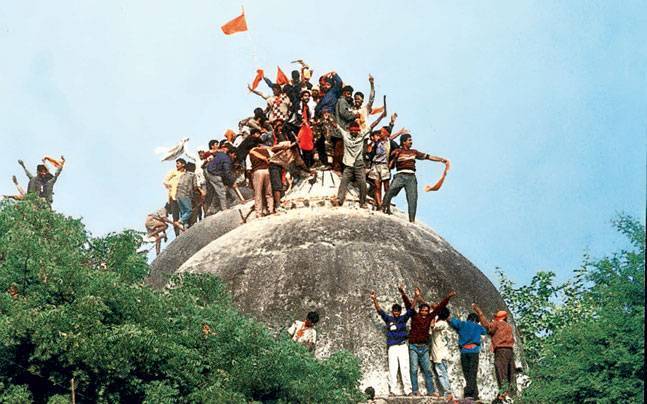

South Asia is home to one-third of the world’s Muslim population. Contrary to the popular belief there are more Muslims in South Asia than there are in middle-east which is popularly known to be the heart-land of Islam. After Indonesia, India is the second country in the world with the largest Muslim population. India is anciently known to be the hub of Hinduism, Buddhism and Jainism. So, when and how did a country largely consisting of Hindus, Buddhists and Jains become so densely populated by Muslims? How did Islam emerge in pre-colonial India? As much as there is a controversy around this inquisition, there is also a lack of historical, geographical and political awareness related to it. The most important aspect to this bone of contention is the appalling state of the Muslims in post-colonial India, and how is it different from that of the Muslim diasporas in the rest of the world, in specie the West. Albeit there have been events of religious violence in pre-colonial and British India, the post-colonial period has seen an enormous increase in riots and hate crimes against Muslims in India.
Also read, India Ranks 161st in Terms of Journalistic Freedom- RSF
The Image of Muslims in the West
The image of Muslims in the west has been in question lately more than ever in the world in general. The rise of hate crimes against Muslims usually chalk up to the 9/11 attack against the United States which was allegedly carried out by a religious extremist organization Al-Qa’ida. Having said that there have been some crucial conspiracy theories that called for a new investigation into the attacks, because they asserted that there was evidence of individuals from within the US government being either responsible for or knowingly having conspired in the attacks as a means for America of justifying the war in Afghanistan and Iraq. However, majority of the general public held the opinion that Al-Qai’da had orchestrated the attack. Because the members of the Al-Qai’da were people who proclaimed to be the adherents of the religion of Islam, this gave rise to a sense of bigotry and intolerance in the west towards the entire Muslim community.
The widely accepted notion among the broad commonality incriminated the Muslims of effectuating the attack. Non-Muslims started generalizing Muslims and started viewing them as people who endorsed terrorism, which led to a common prejudice against them in the western society. From their customs and religious practices, including their eating habits, to their appearance and clothing, Muslim men and Women were looked down upon and stereotyped as radical and fundamentalists. This generalization and stereotyping of Muslims gradually turned violent in nature and this turn of events gave rise to a series of hate crimes resulting in abuse and even unfortunate deaths of many Muslims. Howbeit, even before the 9/11 attack, many bookmen and laypeople alike had accepted a prior perception that religious terrorism had become the most common form of terrorism, particularly with regard to Islam. This suggests that Islamophobia was a common practice even before 2001.
Read here, “The Kerela Story” Controversy in India
Islamophobia before 9/11
People have associated Islamophobia with various manifestations. While some people reckon the phenomena with the increasing population of Muslims in the United States and Europe, others deem it to be retaliation for an ostensible anticipation of the emergence of a global Muslim identity. Yet many others identify Islamophobia with xenophobia and racism. Another less talked about reason for Islamophobia is the media’s double standards while reporting terrorism. A recent study has found out that terror attacks by “muslims” receive 357% more press attention. This was University of Alabama researcher’s newly study which was published in Justice Quarterly (academic journal covering criminology and criminal justice) authored by Dr. Erin Kearns, UA assistant professor of criminology and criminal justice. Still and all the causes of Islamophobia have always been and till date are debatable.
In the spate of attacks on Muslims in the western countries including the United States, United Kingdom, Canada, Switzerland and New Zealand, it should be noted that the occurrence of such deplorable crimes in the West have one regularity. They are all driven by Islamophobia, the impetus of which is the bigotry for Muslims, a sequence to the specious notion that Muslims endorse Terrorism.
Also, read Muslim OBC Reservation scrapped by BJP government of Karnataka
Appalling State of Muslims in post-colonial India- Partition
Talking about Islam and Muslims, then like in West the appalling state of Muslims is much the same in parts of South Asia explicitly in India, but for wholly different reasons. Though there have been incidents of religious violence in pre-colonial and British India, the history of modern India has seen a compelling surge in the estimate of both subjective and objective violence. But what accounts for this rise of violence against Muslims in independent India? Is it Islamophobia that drives this hatred, just like it does in the West.
Inasmuch these crimes are a result of anti-Muslim sentiments in both the West and in India, the causes of these crimes are primitively much different. Benchmarking the nature of these crimes and the disparity in the claims of the perpetrators, one finds out that there is significantly a historical aspect to the nature of violence against Muslims in India. The partition of British India into two different countries, now called India and Pakistan, was originally borne out of a religious divide amongst Hindus and Muslims. As history claims, different people were for and against partition, as each had a different vision in mind.
There are many theories that explain the reasons for the establishment of Pakistan. One of the most agreed upon consensus of the pro-partition leaders for the formation of Pakistan was the subject of safety of the Muslim minority in the otherwise Hindu majority India. The earlier incidents of religious violence in India had taken a toll on both the Hindus and Muslims. The Muslims being the minority were now more insecure about their safety while living amongst Hindus. Because the safety of Muslims had been in question, ultimately the demand for a separate country for Muslims by the pro-partition leaders was unanimously supported by most Muslims. The Muslims who were not able to migrate then to the land given to Pakistan were left in India, and thus were even less in number, making them an even smaller minority than before.
Read here, India- The Killing of Gangster-Turned-Politician Atiq Ahmad
Commencement of the Appalling State of Muslims in post-colonial India
What marked the commencement of the violence against Muslims in Independent India was the demolition of Babri Masjid, a 430 year old mosque in Ayodhya by extremist Hindus and members of Vishwa Hindu Parishad(VHP) and Bajrang Dal. What followed was a sequel of incidents feuled by the religious animosity stirred between Hindus and Muslims. There has been a continuing rise in the manifestation of hate crimes and incidents of religious prejudice against Muslims in India ever since. However, with the emergence of the current government in India, the last few years have seen an enormous and noticeable amount of hate driven crimes including rape, public flogging and lynching. The motives of the perpetrators for committing such heinous crimes are as bizarre as they are abominable. Concepts like cow vigilantism and theories like “Ghar Wapsi” have been doing rounds in the air and have accounted for most of these crimes if not all.
Also, read UN Defender Demands End to Crackdown on Kashmiri Activists
The idea of “Ghar Wapsi” in the appalling state of Muslims in post-colonial India
The idea of “Ghar Wapsi” has also been endorsed and publicized by the right-wing extremists in India, including the leaders of the current government. It is a concept that propagates religious conservation of non-hindus to Hinduism. The reason behind the ideology of these people is their belief that all the people living in pre-colonial and ancient India were originally Hindus. They believe that the emergence and presence of non-hindus in India is only because of the forced conversions by missionaries and invaders that came to India from outside, who were by and large Muslims. This ideology is linked to the pre-colonial past of India. It refers to the period when Islam first emerged in India in 711, when Mohammad Bin Qasim, who was a general in the Umayyad -empire conquered the area of the Southern Pakistan. This was the initial interaction of Islam with South Asia.
Afterwards in the 13th century, the Mongol Invasion uprooted a large number of Persian Turks from Iran and Central-Asia driving them to India where they settled in. And so gradually the tradition and practices of these people started to blend in the syncretic culture of India. Subsequently in the late 13th century with the establishment of the Empire of Timur, began the era of the rise Muslim rulers in India.
Later on in 1526, Babur, a direct descendant of Timur, founded the Mughal Empire, which then ruled almost all of the Indian subcontinent for more than 200 years. During the growth of the Mughal Empire under Babar’s son Akbar (1526-1605) there was an essential blending of Hindu-Muslim cultures. Akbar married a Hindu princess of a pure Hindu Rajput blood-line. This made Akbar’s son Jehangir half Rajput and half-Hindu. After Akbar, his son also married a Hindu woman, and therefore Jehangir’s son Shahjahan was three-quarters Rajput. With the rise of the Mughal Empire, biologically each successor of the dynasty became less and less Turkic and more and more Indian. They adapted the culture of India and also the Indian culture was insinuated by the Islamic traditions, resulting in the concoction of two separate cultures and religions.
Read here, Festival turns bloody after Hindutva Mob Burnt Centennial Mosque
Historic Bias as a reason for the Appalling State of Muslims in Post-Colonial India
These religious and cultural adaptations are, however, still seen as unethical and blameworthy by many Hindus in India, as they see Islam as a threat to their own culture and identity, as a foreign concept brought to India from outside. They consider the presence of Muslims in India as a result of the historic invasions and forceful conversions by Muslim outlanders and conquerors, and not the gradual amalgamation of two different cultures and religions over the course of time. Crimes like lunching and theories like “ghar wapsi” are not mere co-incidents but are borne out of such historic beliefs. They are a corollary of a historic hurt that these people carry. The violence in the west or bread out of islamophobia is sporadic in nature and often spontaneous while in India violence is structured. Unlike the west, the primeval and ever-growing intolerance towards the practices and culture of Muslims in modern day India is not because of the nature of these practices. On the contrary, in India Islam as a religion is not seen as much of a threat but Muslims are.
Also, read Dehumanizing Representation of Tribals and Muslims in the Oscar fame RRR
Trending
-



 Featured9 months ago
Featured9 months agoWorld passively watching as Israel perpetrates open-ended massacre in Gaza
-



 Featured10 months ago
Featured10 months agoIsrael is Hiding Crucial Demographic Facts About Palestinians
-



 Featured2 years ago
Featured2 years agoArgentina wins the World Cup; are there any other winners?
-



 Featured4 years ago
Featured4 years ago“Do Not Waste Water Even If You Were at a Running Stream” Prophet Muhammad
-



 Featured3 years ago
Featured3 years agoHistory of the Ottoman Empire
-



 Featured10 months ago
Featured10 months agoMuhammed: The Greatest Man to walk on Earth
-



 Featured2 years ago
Featured2 years agoChristian militia infiltrate Lebanon
-



 Featured4 years ago
Featured4 years agoFriendship is a Way For Jannah
